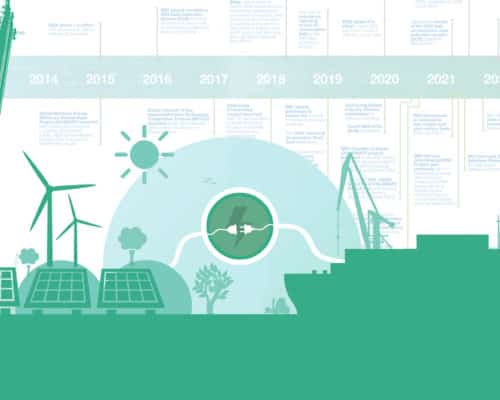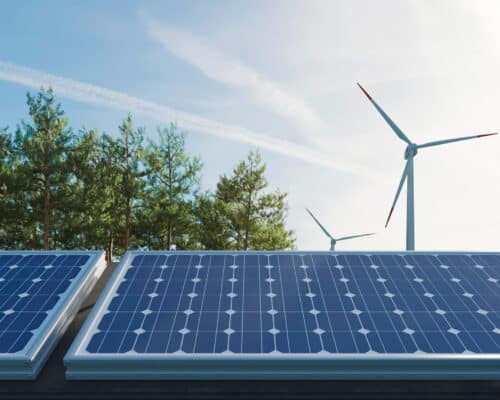Articles
The Transition to Clean Cooking: How to Replace Gas?
While gas has long been considered a clean cooking fuel, research shows that it can impact health. This, paired with the high gas prices, the global net-zero journey is making countries around the world look for alternatives. Induction and electric stoves can be the solution. And the renewable energy transition is starting to prove it.
Gas Prices in India: Hurting Women and the Poor
Soaring gas prices across the globe could have deadly consequences for India’s low-income households who are already struggling to afford their basic needs.
Cooking With Gas – The Full Story
Natural gas is the most popular cooking fuel worldwide, particularly in developed countries. Natural gas use rates will likely increase over the next several decades as more supporting infrastructure becomes available. However, the combustion of natural gas leads to several harmful greenhouse gases, which have direct health and environmental effects.
3 Ways AI Can Stop Climate Change
Can powerful AI and computing power help the global fight against climate change and contribute to net-zero goals? These are the top three ways AI can help.

Sri Lanka’s Worst Economic Crisis: Is There a Way Out?
Sri Lanka is in crisis. From rationing fuel to ousting leaders, the road to stability for the island nation will be bumpy and challenging.
Using Gas for Cooking in Asia: History, Drawbacks And Future
In the search for cheaper and cleaner cooking alternatives, countries across the world are replacing gas stoves with induction and electric appliances. While low and middle-income countries in Asia might find this shift challenging at first, the path forward is clear – dirty and expensive fuels will make way for cleaner and cheaper alternatives.
High LNG Prices in Asia: Risk Causing Permanent Demand Drop
The demand for LNG in Asia is plummeting. Developing nations can't bear with the high gas prices and are actively looking toward renewables. Even fossil fuel stewards are starting to have second thoughts. And if the high gas prices continue, which seems likely, the demand drop might be irreversible.

Is There a Future For Wind Turbines in Singapore?
Singapore has many road blocks in adopting low carbon energy, one of which is the lack of viability for wind turbines. The country's most efficient renewable energy option is solar energy. However, even solar faces its own challenges – mainly limited land. As an alternative, Singapore is looking toward its neighbouring nations to import low-carbon energy in pursuit of its net-zero goals.
“Companies Funding Russian War” – CREA’s 2022 Report Exposes
Fossil fuels are not only fuelling the climate crisis but are also the engine that powers the Russian war in Ukraine. By buying Russian fossil fuels, Asian companies are becoming responsible for the war atrocities in the heart of Europe.
Vietnam’s National Climate Change Strategy to 2050 and the Plan for Meeting Its COP26 Commitments
Vietnam's latest move is proving that despite the growing needs of its energy-hungry economy, it will actively pursue its net-zero commitment and prioritise climate change mitigation and adaptation efforts – a move that other Asian countries should take note of.
Home Wind Turbines – All You Need To Know
Home wind turbines have historically seen low adoption rates, but this is changing. They are finding a place as part of local microgrids and larger energy systems. Combined with other energy sources and battery storage systems, they are an essential piece of renewable energy technology.
Who Buys Russian Oil and Gas? – The Case for Renewables in Asia
While Europe has imported the most fossil fuels from Russia, it is now banning them and plans a switch to renewables. However, Asian countries and companies need to follow this trend, as money spent on fossil fuels is money indirectly spent on Russia's war effort.
Sustainable Flying – Can Air Travel Be Carbon Neutral?
Will sustainable flying ever arrive? The aviation industry is heavy on carbon emissions and oil. Net-zero goals and carbon capture could help.
Korean and Japanese Companies in Vietnam Are the Main Gas Expansion Advocates
The pressure from Japanese and Korean companies on Vietnam to move in the direction of gas expansion risks tarnishing the country's clean energy progress and locking it into a future of energy instability, high electricity prices and stranded assets.
Most Popular
Most Popular
Categories
-
10
-
34
-
126
-
4
-
17
-
46
-
52
-
11
-
15
-
10
-
24
-
6
-
5
-
1
-
6
-
281
-
200
-
17
-
24
-
1
-
1
-
23
-
41
-
44
-
87
-
18
-
86
-
41
-
17
-
11
-
43
-
54
-
86
-
299
-
22
-
44
-
36
-
10
-
42
-
36



